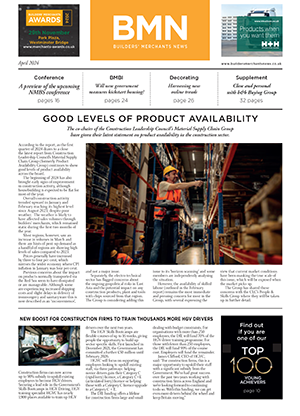UK: Construction output returns to contraction as new business levels fell for the sixth month in a row. Employment is dropping at its fastest pace since December 2010, according to figures released by the Markit/CIPS UK Construction Purchasing Managers' Index.
Business conditions in the UK construction sector deteriorated during November, with output falling for the third time in the past four months amid the steepest new orders decline for just over three-and-a-half years.
A lack of new business to replace completed contracts in turn contributed to a marked drop in confidence regarding the outlook for the next 12 months.
The latest data pointed to the weakest degree of positive sentiment since the near-record lows seen in December 2008. As a result, jobs were cut again in November, and at the fastest pace for almost two years.
Adjusted for seasonal factors, said the Purchasing Managers' Index, posted 49.3 in November, down from 50.9 in the previous month and its lowest level since August.
The latest reading was much lower than the long-run average (54.1) and below the neutral 50.0 mark for the third time in the past four months.
Lower levels of construction activity were driven by solid reductions in housebuilding and commercial activity during November.
Residential building has now dropped for six months running, while the latest fall in commercial construction was the steepest since December 2009.
In contrast, civil engineering activity increased again, and at the most marked pace for seven months.
Survey respondents frequently cited shortages of new work to replace completed projects in November. This was highlighted by the steepest reduction in incoming new business since April 2009.
Lower new order volumes have now been recorded for six months running. Reduced customer demand and the most subdued confidence in the outlook for activity for almost four years resulted in further job shedding at construction companies during November.
The rate of decline in employment numbers was the fastest since December 2010.
November data also signalled a solid reduction in purchasing activity across the UK construction sector, thereby extending the current period of decline to six months.
However, lead-times from suppliers continued to lengthen, largely reflecting lower capacity at vendors. Average supplier performance has deteriorated in each month since September 2010.
Meanwhile, construction companies indicated that input price inflation eased only slightly from the 10-month high recorded in October.
Latest data signalled a strong rise in purchasing costs, which a number of firms linked to rising fuel and energy prices.
Average input costs have now increased in the construction sector during each of the past 34 months.
Tim Moore, senior economist at Markit and author of the report, said: "A protracted decline in workloads, the double-dip UK recession and shrinking investment spending has made 2012 a year to forget for the construction sector.
"November's PMI survey suggests that construction output has yet to hit rock bottom. This was highlighted by new work dropping at the fastest pace for around three-and-a-half years, while signs of a greater squeeze on client's budgets for 2013 brought confidence to its weakest since the record lows of late 2008.
"Add to that the signs that construction companies are fearing a prolonged period of depressed demand, employment fell again in November, and at the steepest pace for almost two years.
David Noble, chief executive officer at the Chartered Institute of Purchasing & Supply, said: "Housebuilding continues to witness falling levels of activity and the commercial sector, the shining light of construction earlier this year, is contracting at the fastest pace since late 2009. Civil engineering continues to be the one sliver of growth in the sector.
"Input price inflation eased marginally from the 10-month high in October, courtesy of high fuel and energy costs, leaving the sector in a difficult place as it searches for reliefbefore 2013."






